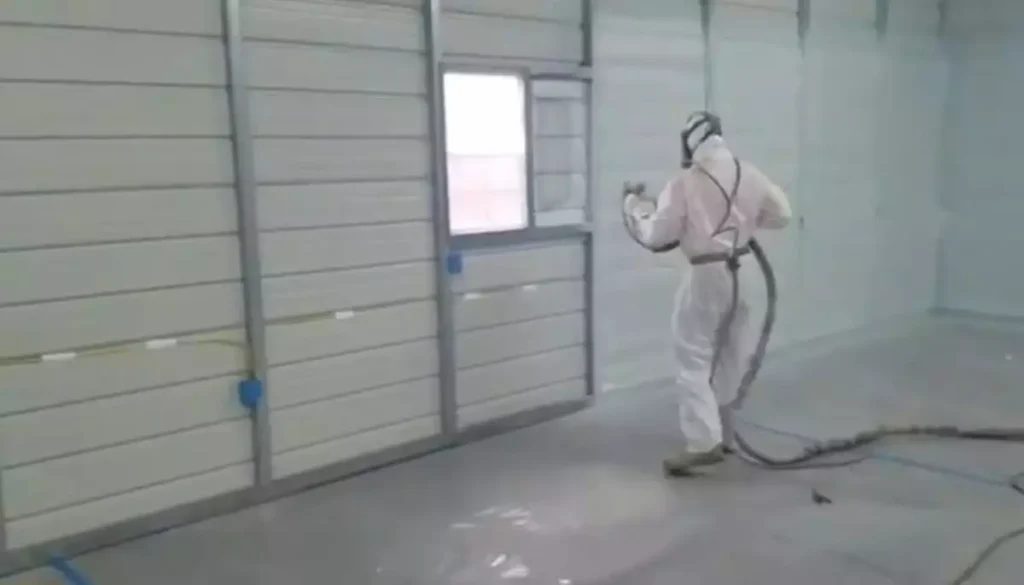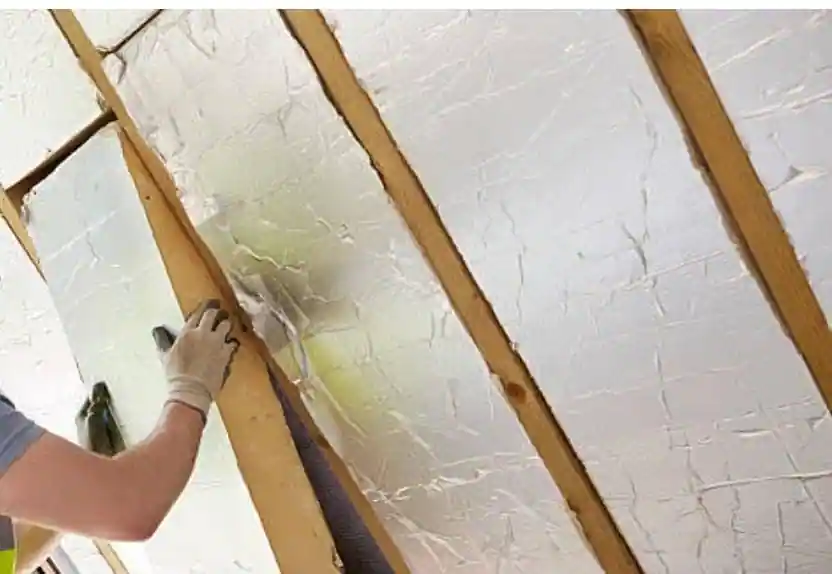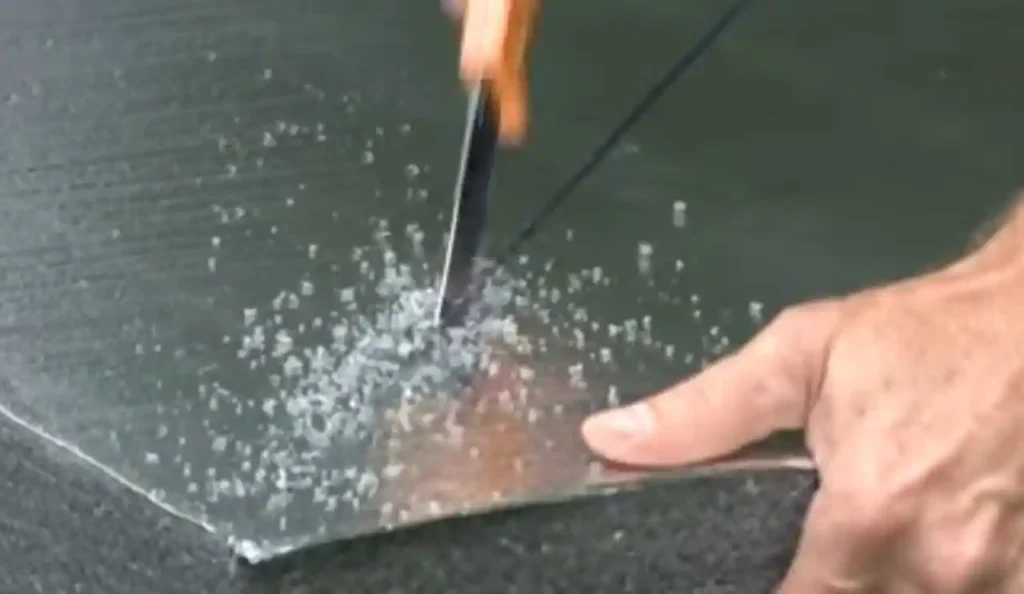What r value insulation for garage walls, and what type of insulation to use in garage walls full information along with what r value for garage walls 2×4 and 2×6- Selecting the Suitable R-Value
Garages are multipurpose facilities that can be used for storage, workshops, or even housing. You may know, proper insulation is critical for maintaining comfortable temperatures along with preventing energy loss, as well as protecting stored things.
Selecting the appropriate R-value for the walls is a vital part of garage insulation. In this detailed post, we are going to discuss garage wall r value. Here We’ll look at the necessity of garage wall insulation, elements to consider when selecting insulation materials, and rules for determining the optimum R-value. We hope you may read the post, Best Garage Door Insulation For Hot Climate, still didn’t read then click and read it.
Why Insulate Garage Walls?
Garage walls sometimes share boundaries with conditioned living spaces, making them prone to heat transmission. According to research without appropriate insulation, garages can become hot in the summer and chilly in the winter, causing discomfort for residents and increasing energy expenses. Insulating garage walls can help to manage inside temperatures, improve energy efficiency, as well as help increase overall comfort inside your garage. Insulation also works as a barrier to noise, moisture, and air intrusion, protecting the structure and its contents, but the value of insulation material is correct, that’s an important point when you are going to insulate the walls of a garage.
Factors to Consider When Selecting Insulation Materials:
Several considerations should impact the selection of insulating materials for garage walls:
R-Value:- what r value insulation for garage walls
The R-value evaluates the heat resistance of the insulation material; the higher the R-value, the more effective the insulation. When deciding on an R-value for your garage walls, keep in mind your temperature zone and desired level of insulation.
Material types:
Insulation materials for garage walls include fiberglass batts, foam boards, spray foam, and cellulose insulation. Each material has its distinct features in terms of thermal performance and energy efficiency along with moisture resistance, as well as installation methods.
Fire Safety:
Ensure that the insulating material you choose meets fire safety rules and provides enough protection against fire threats.
Moisture Resistance:
Garages are vulnerable to moisture intrusion from rain, snow, and humidity. To avoid mold and mildew growth, use moisture-resistant insulation or create a vapor barrier.
Cost & Budget:
Think about the initial cost of insulating supplies and installation expenses. Balance your budget with long-term energy savings and possible ROI.
what type of insulation to use in garage walls- Guidelines for Choosing the Appropriate R-value:
The ideal R-value for garage wall insulation is determined by various factors, including climate, desired energy efficiency, and local building standards. Here are some guidelines to help you choose the suitable R-value.
climatic Zone:- what r value insulation for garage walls
Use the Department of Energy’s Climate Zone Map to determine the climatic zone for your region. Extreme temperatures necessitate greater R-values to preserve indoor comfort and energy economy.
Energy efficiency goals:
Determine your energy efficiency goals and preferred level of insulation. When determining the R-value, take into account heating and cooling expenses, tenant comfort, and environmental impact.
Local building codes:-what r value insulation for garage
Check local building codes and regulations to ensure that garage walls meet the minimum insulation requirements. Building rules may require certain R-values dependent on climate and building requirements.
Cost-Benefit Analysis:
Compare the prospective savings associated with increased R-value insulation to the upfront installation costs. You need to consider things like energy savings, utility rebates, as well as long-term maintenance costs.
Consultation with Experts:
Insulation contractors, energy auditors, or building professionals can examine your insulation requirements and offer the best R-value for garage walls. Their knowledge can help you make informed decisions and attain peak energy efficiency.
Proper insulation in garage walls can help to improve indoor comfort and energy efficiency. When choosing insulating materials and determining the necessary R-value, keep climate zone, material type, fire safety, moisture resistance, and budget in mind. By following recommendations and working with specialists, you can guarantee that your garage walls are appropriately insulated to achieve your energy efficiency goals while also improving overall comfort with correct r value.
What R Value For Garage Walls 2×4
The R-value of a wall indicates its thermal resistance, or how well it insulates against heat flow. The higher the R-value, the more effective the insulation. The R-value of a wall is determined by various factors, including the materials used, thickness, and thermal conductivity.
The R-value of a conventional 2×4 wall, which is widely used in garage construction, varies depending on the insulation material used within the hollow. Here are several common insulation solutions for 2×4 walls, with approximate R-values per inch of thickness:
Fibreglass batt insulation:
Fibreglass batt insulation is a popular insulation material used in residential construction. In a 2×4 wall cavity, fiberglass batt insulation usually has an R-value of R-13 to R-15 per inch of thickness. As a result, a conventional 2×4 wall insulated with fiberglass batts would have an R-value of roughly R-13 to R-15.
Cellulose insulation:- what r value for garage walls 2×4
Cellulose insulation is comprised of recycled paper that has been treated with fire retardant. It is blown into wall cavities for loose-fill insulation. Cellulose insulation typically has an R-value of between R-3.2 and R-3.8 per inch of thickness. As a result, a 2×4 wall with cellulose insulation may have an R-value ranging from R-12.8 to R-15.2.
Spray foam insulation:- what r value for garage walls 2×4

Spray foam insulation is a high-performance insulation material that expands after application to entirely fill wall voids. Closed-cell spray foam insulation offers a greater R-value than open-cell spray foam. Closed-cell spray foam typically has an R-value of between R-6.0 and R-7.0 per inch of thickness. Thus, a 2×4 wall insulated with closed-cell spray foam could have an R-value ranging from R-24.0 to R-28.0.
It is crucial to remember that these R-values are estimates and may vary depending on installation quality and ambient circumstances. In addition, your area’s construction laws and energy efficiency standards may specify minimum R-values for garage walls. When choosing insulation for garage walls, consider cost, performance, and local construction codes. It is also advisable to speak with a trained insulation contractor or building specialist to choose the best insulation option for your particular project.
When choosing insulation for 2×4 walls, it is critical to consider both the available space and the desired level of thermal performance. Higher R-values result in better insulation, although they may necessitate thicker insulation materials or more advanced insulation procedures. In this passage, we hope you have understood what r value insulation for garage walls, now in the next passage we will see, what r value for garage walls 2×6
What R Value For Garage Walls 2×6
For garage walls built with 2×6 studs:
Insulation Options:– what type of insulation to use in garage walls
Because of the greater depth afforded by 2×6 studs, there is more capacity for insulation, allowing for better R-values than 2×4. Fibreglass batts, rigid foam board, and spray foam insulation are all common insulation solutions.
Fibreglass batt insulation for 2×6 walls R-Value Range:

Fibreglass batt insulation for 2×6 walls normally has an R-value ranging from 19 to 25.
Rigid foam board insulation:- what r value for garage walls 2×6
The R-value of rigid foam board insulation can range from R-19 to R-35, depending on the thickness of the foam.
Spray foam insulation for 2×6 walls:
Spray foam insulation for 2×6 walls can have R-values ranging from 21 to 35.
Benefits of 2×6 Construction:-

Using 2×6 studs for garage walls allows for thicker insulation and greater R-values, which can lead to better energy efficiency and comfort in the garage. This can be especially useful in areas with harsh temperatures or when the garage is used as a living space or workshop.
In summary we can say, the R-value requirements for garage walls constructed with 2×4 or 2×6 studs are determined by local building rules, climate circumstances, and the garage’s intended purpose.
It is critical to carefully analyze these considerations and choose insulating materials that deliver the appropriate level of thermal performance while adhering to applicable building codes. Consult a local building specialist or insulation contractor to ensure that the insulation you choose fulfills your individual needs and specifications.
What Type Of Insulation To Use In Garage Walls
When thinking about garage wall insulation, various aspects must be considered, including budget, climate, local building requirements, and the garage’s intended purpose.
The following are some common forms of insulation used in garage walls, along with their characteristics and considerations:
Fiberglass insulation-
Fiberglass insulation is one of the most popular and cost-effective choices. It comes in batts or rolls and is composed of fine glass fibers. Fiberglass insulation provides good insulating characteristics and is reasonably easy to install. However, it can be unpleasant to the skin and respiratory system during installation, thus wearing appropriate protective clothing is recommended. It is critical to install fiberglass insulation properly, leaving no gaps or spaces that might reduce its efficiency.
Cellulose Insulation:
Cellulose insulation is created from recycled paper that has been treated with fire retardants. It is environmentally friendly, has strong insulating characteristics, and can be blown into wall cavities to effectively fill any gaps or spaces. Cellulose insulation is also mold and insect-resistant. However, it may settle with time, limiting its efficiency, thus correct installation is essential.
Spray foam insulation-
Spray foam insulation is a high-performance alternative that offers great insulation and air-sealing capabilities. It expands to fill voids, forming an airtight barrier that reduces heat loss and air penetration. Spray foam insulation is available in two types: open-cell and closed-cell. Closed-cell spray foam has a higher R-value and better moisture resistance, but it is more expensive than open-cell foam. Spray foam insulation installation involves specialized equipment and knowledge; thus, it must be done by a professional.
Rigid foam insulation-
Rigid foam insulation, which includes extruded polystyrene (XPS) and expanded polystyrene (EPS), has high R-values and is moisture resistant. It is available as rigid panels or boards that may be cut to fit and put between studs or on the inside surface of garage walls. Rigid foam insulation is light and easy to handle, making it ideal for DIY installation. However, it may cost more than other types of insulation.
Reflective insulation-

Reflective insulation is made out of a layer of reflective material, such as aluminum foil, sandwiched between layers of other insulation materials, such as fiberglass or foam. It works by reflecting radiant heat away from the interior space, which helps to keep temperatures comfortable. Reflective insulation is frequently used in conjunction with other forms of insulation to improve thermal performance. To work properly, reflective insulation must be installed with the reflective surface facing an air gap.
When selecting insulation for garage walls, consider R-value, moisture resistance, ease of installation, and compliance with local construction laws and regulations. It’s also critical to have sufficient ventilation in the garage to minimize moisture buildup and maintain indoor air quality. If you’re unclear about the best insulation choice for your garage, go to a professional insulation contractor or building specialist who can make tailored recommendations based on your individual needs and requirements.
Sum Up Post, What R Value Insulation For Garage Walls
R-Value Range for garage wall 2×4 by using, Fibreglass batt insulation normally has an R-value of R-11 to R-15 in 2×4 walls. Rigid foam board insulation has greater R-values per inch than fiberglass batts, ranging from R-13 to R-21 depending on foam thickness. Spray foam insulation can achieve even greater R-values, ranging from R-13 to R-20 for 2×4 walls, and what r value for garage walls 2×6 is mentioned in this post.
At last, we suggest, selecting insulation for garage walls, considering R-value, moisture resistance, ease of installation, and compliance with local construction laws and regulations. It’s also critical to have sufficient ventilation in the garage to minimize moisture buildup and maintain indoor air quality. We hope you have understood about, what r value of insulation for garage walls is.
Do let us know how you feel about this information by commenting.
Like our Facebook page and follow for other updates like this.

